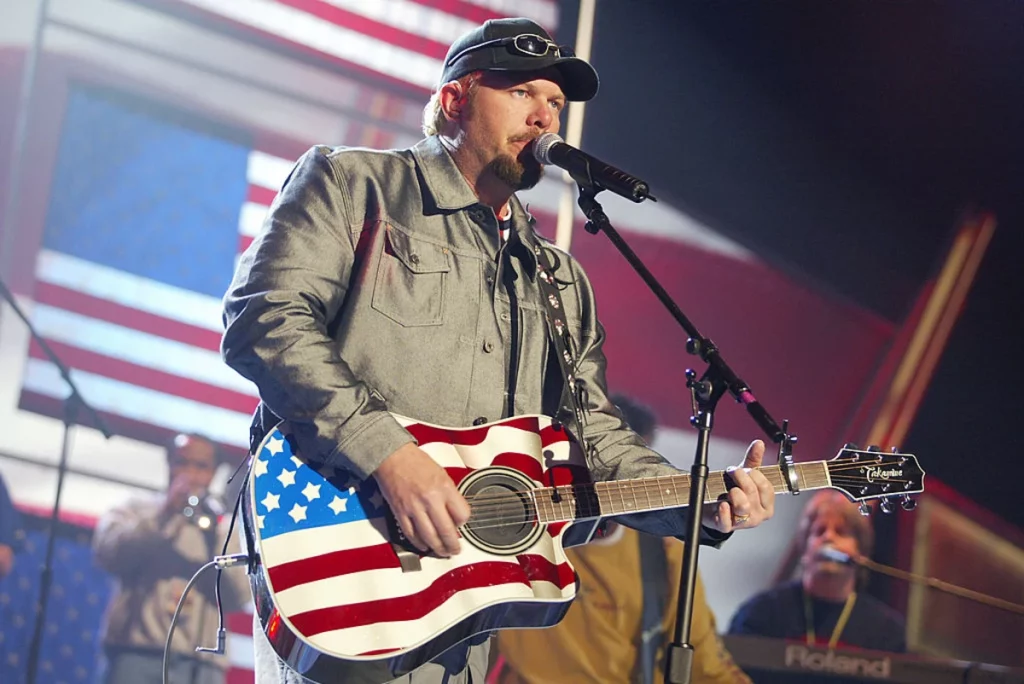
Courtesy of the Red, White and Blue (The Angry American)
In the aftermath of the tragic events of September 11, 2001, America found itself grappling with a newfound sense of vulnerability and a heightened awareness of the threats posed by global terrorism. Amidst this climate of fear and uncertainty, a wave of patriotic fervor swept across the nation, and country music artists were at the forefront of this movement. One of the most powerful and enduring anthems to emerge from this period was “Courtesy of the Red, White and Blue (The Angry American)” by Toby Keith.
Released in 2002, “Courtesy of the Red, White and Blue” quickly became a ubiquitous presence on radio airwaves and country music charts. The song’s opening lines, “We’ve been through hell and back, but we’re not giving in,” captured the defiant spirit of a nation that had been shaken but not broken. Keith’s gravelly voice and impassioned delivery resonated with listeners, and the song’s lyrics, which painted a vivid picture of American resilience and determination, struck a chord with a populace seeking solace and unity.
“Courtesy of the Red, White and Blue” is more than just a patriotic ballad; it is a declaration of war against those who would seek to harm America and its people. The song’s chorus, “We’ll put you in your place, Courtesy of the Red, White and Blue,” is a chilling reminder of America’s military might and its unwavering resolve to defend its freedoms.
However, “Courtesy of the Red, White and Blue” is not without its critics. Some have accused Keith of exploiting the events of 9/11 for commercial gain, while others have taken issue with the song’s jingoistic tone and its perceived endorsement of violence. Despite these criticisms, the song remains a powerful and popular anthem for many Americans, and it continues to be performed at patriotic gatherings and sporting events.
“Courtesy of the Red, White and Blue” is a product of its time, a reflection of the anger, fear, and patriotism that gripped America in the aftermath of 9/11. Whether one views it as a moving tribute to American resilience or a misguided expression of xenophobia, there is no denying that the song has had a profound impact on American culture. It is a reminder of the transformative power of music and its ability to evoke strong emotions in people from all walks of life.